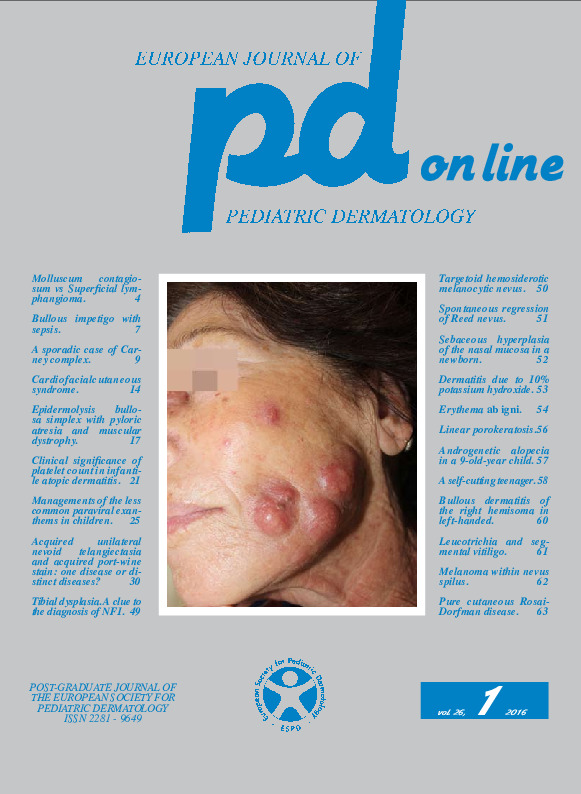Irritant contact dermatitis with 10% potassium hydroxide.
Downloads
DOI:
https://doi.org/10.26326/2281-9649.26.1.1197How to Cite
Milano A. 2016. Irritant contact dermatitis with 10% potassium hydroxide. Eur. J. Pediat. Dermatol. 26 (1): 53. 10.26326/2281-9649.26.1.1197.
pp. 53
Abstract
The natural history of molluscum contagiosum is characterized by spontaneous and definitive resolution within 6-9 months. When the lesions are removed before the organism has learned to get rid of it alone, recurrences are the rule, regardless of the method used. With this in mind, the removal of the lesions is indicated when the child is inserted in a social group and the lesions are located in exposed sites. The method of removal must be chosen according to the affected site: in lesions of the face and especially of the periocular region many therapies both physical (cryotherapy, etc.) and chemical (potassium hydroxide, etc.) cannot be used especially in the early years. The inflammation can be spontaneous or induced by topical treatment. A treatment with 10% potassium hydroxide, besides dyschromic residua, can cause erosions and ulcerations (1, 2).Keywords
Potassium hydroxide, molluscum contagiosum

